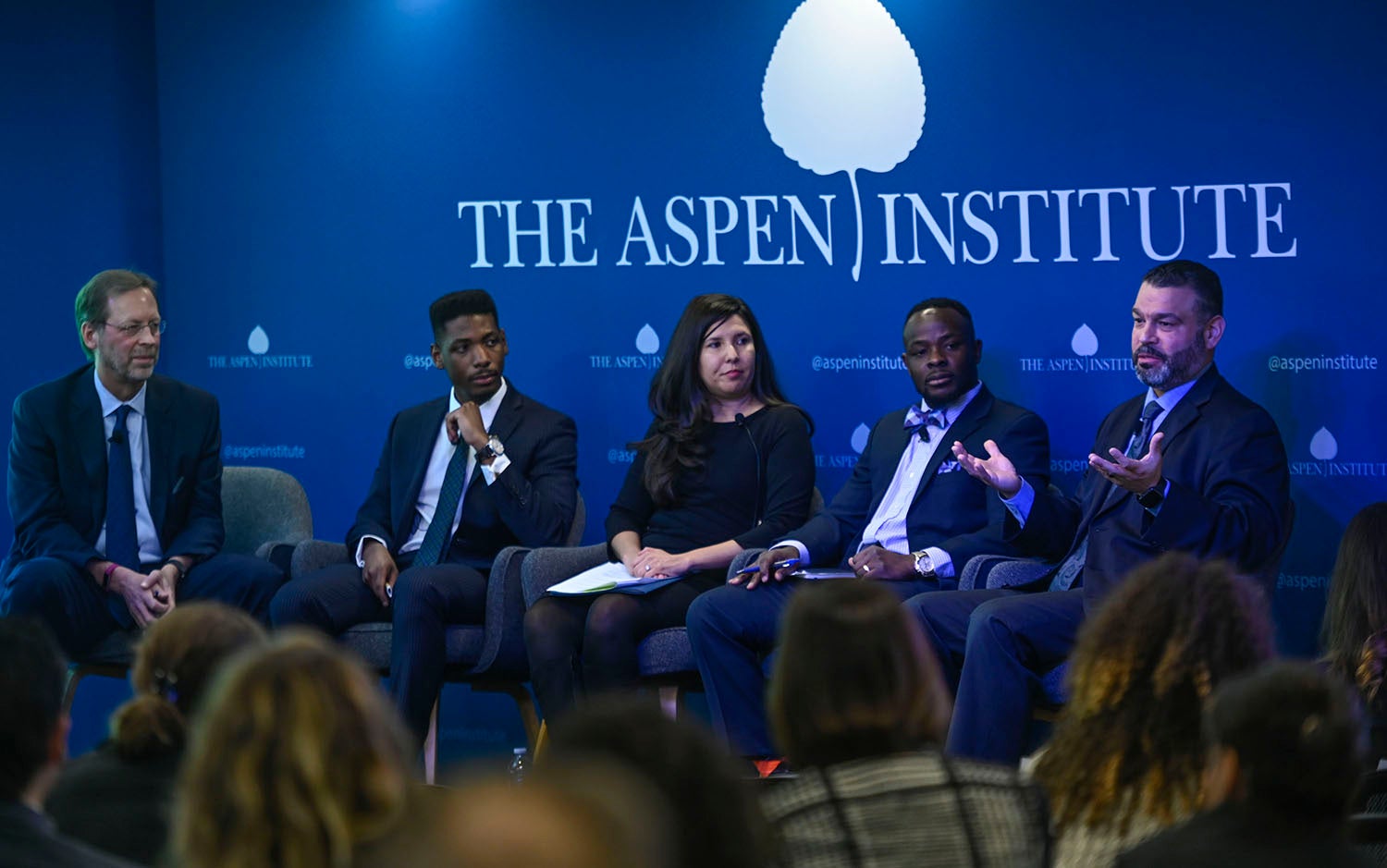Right now, between election night and inauguration day, hundreds of new legislators and dozens of new governors and state officials are preparing to transform campaign promises into legislative action. This shift is always easier said than done. Candidates spend months—even years—sharpening rhetorical points, fortifying positions with simple two-sentence solutions, and bombarding opponents with attacks over the airwaves. How much safer it seems to sit in our own trenches and wait for the other side to surrender rather than to enter the space between and negotiate an end to the stalemate. How much easier it is to shout into the void than to build a bridge across it.
Building bridges is central to the nonpartisan identity of the Aspen Institute—connecting our mission, values, practice, and purpose. We create the conditions for individuals to cross safely the frontiers of their own ideologies so they can encounter, understand, and appreciate new ideas. While it has become common to see politics and policy as zero-sum games, our experience and data tells us this isn’t true. Defeat is not death and rarely are our opponents actually our enemies.
Nowhere is this work more important, true, and urgent than in public education. Regardless of who we are—parents or students, rich or poor, young or experienced, private entrepreneur or public servant—public education matters. If our young people are our greatest natural resource, then public education is our greatest national investment. It represents our national ideals of equity and opportunity.
Even with a shared good from which we all benefit and in which we all have an ownership stake—like public education—extreme partisanship makes progress difficult. That’s why the work of the Education and Society Program at the Aspen Institute is so important.
Recently, Education and Society worked with a broad cross-section of leaders and stakeholders from across the political spectrum and from around the country to develop a suite of tools that new legislators and state elected officials can use to translate campaign rhetoric into legislative action. These tools can help identify the things on which elected officials from different parties agree, and spur on the hard but rewarding work of compromise and collaboration. This project is a step towards giving the word “change” substantive, long-term, and transformative meaning beyond the symbolic acts of handing over the speaker’s gavel or the keys to the governor’s mansion. The tools were unveiled and discussed at a public convening on December 12, “The Changing of the Guard: New Opportunities for Education Leadership.”

This project re-centers our public education focus on those who matter most: families and students. For decades, the traditional model of public education innovation has looked to the federal government and philanthropy for direction and directives—with both inspiring success and disappointing failure. Education and Society’s tools and resources place those whose interest in public education is a direct, daily matter at the center of policy changes.
Getting opponents to agree on what the problem is, much less what solutions are viable, continues to be challenging. There will always be critics of nonpartisan solutions who will say “compromise” is a dirty word. But when equity, equality, and inclusion are the foundations of policy work and when we realize that our common benefits from shared systems far outweigh our parochial interests, “compromise” becomes a sacred byword. When opposing sides are able to recognize their common values and interests, amazing progress is possible.
We would do well to remember the origins of the word “compromise,” derived from the Latin compromissus: to make a mutual promise. Compromise is not a surrendering of principles, but an elevation of shared values. It reminds me of the compromise in the last line of the Declaration of Independence: “We mutually pledge to each other our Lives, our Fortunes and our sacred Honor”—a reminder of our shared future.
As we enter into 2019, newly elected legislators, governors, and state education chiefs will have to ask themselves and their political opponents: “What do we mutually pledge to each other?” We at the Aspen Institute have some ideas.

